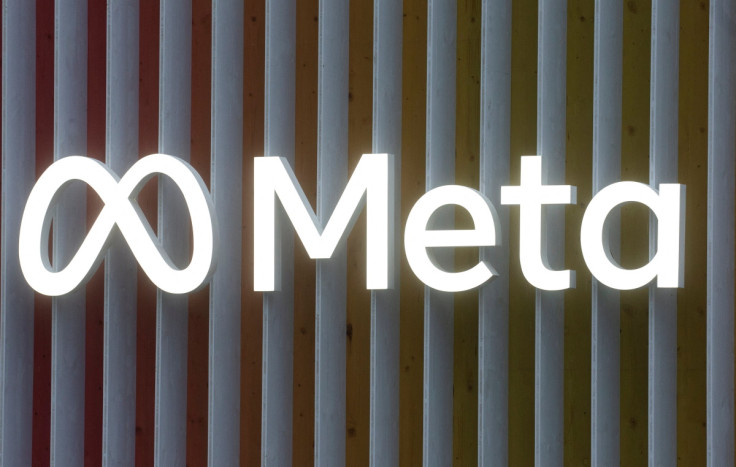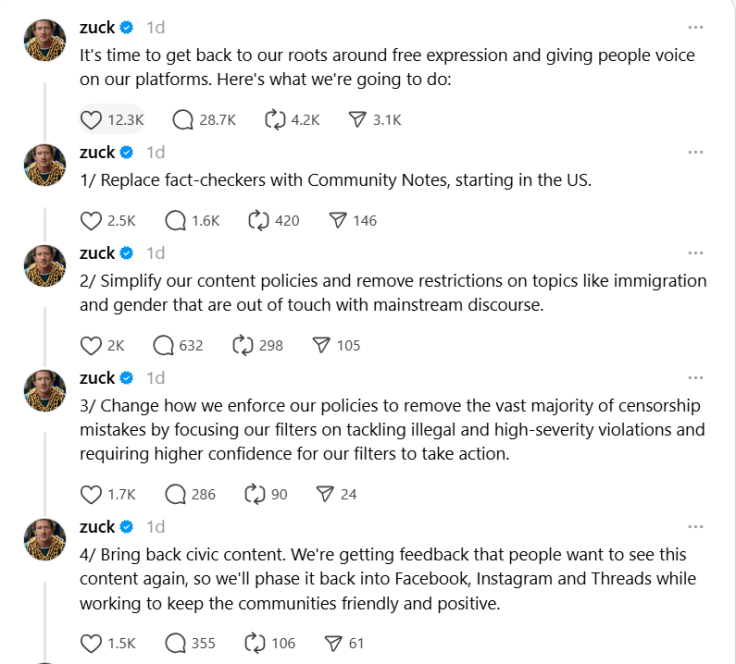Meta's Updated 'Hateful Conduct Policy' Will Allow Users To Say LGBT Members Have 'Mental Illness'
A Meta spokesperson, confirmed these restrictions will be loosened globally

In a bid to prioritise 'free expression' on Facebook, Meta has revised its policies, now permitting users to post content asserting that gay and trans people have mental illnesses.
Meta unveiled a sweeping overhaul of its content moderation policies on 7th January. The company eliminated its fact-checking partnerships and dismantled speech restrictions concerning immigration, gender identity, and gender, which it characterises as frequent subjects of political discourse and debate.
Meta Overhauls Content Moderation Policies
'It's not right that things can be said on TV or the floor of Congress, but not on our platforms,' Joel Kaplan, Meta's Chief Global Affairs Officer, wrote in a blog post outlining the changes. In an accompanying video, Meta CEO Mark Zuckerberg asserted that the company's existing policies in these domains were 'just out of touch with mainstream discourse.'

Concurrently, the company implemented a series of revisions to its Community Guidelines, a comprehensive set of rules that outlines the types of content prohibited across Meta's platforms, encompassing Instagram, Threads, and Facebook.
The 'Mental Illness' Exception
The most significant alterations were observed within Meta's 'Hateful Conduct' policy, specifically those addressing discourse on immigration and gender identity. In an important policy shift, Meta now explicitly permits 'allegations of mental illness or abnormality when based on gender or sexual orientation, given political and religious discourse about transgenderism and homosexuality and common non-serious usage of words like "weird."'
In essence, Meta now seemingly allows users to accuse transgender or gay individuals of mental illness due to their gender identity or sexual orientation. However, Meta spokesperson Corey Chambliss confirmed to WIRED that these restrictions will be relaxed globally.
When questioned about the company's approach in countries with stringent hate speech regulations, Chambliss directed attention to Meta's existing guidelines for navigating local legal frameworks.
What Remains And What's Changed
The updated policy, while relaxing certain restrictions, retains several longstanding prohibitions. For instance, it continues to ban Holocaust denial, the use of blackface, and insinuations about Jewish people controlling the media. Notably, the revised policy now explicitly prohibits comparisons between Black people and 'farm equipment.'
Meta has maintained a list of 'protected characteristics', which include race, ethnicity, national origin, disability, religious affiliation, caste, sexual orientation, sex, gender identity, and serious disease. They also have a policy specifically protecting 'migrants, immigrants, and asylum-seekers' from what they define as 'Tier 1' or 'most severe' attacks, such as content targeting individuals or groups based on these protected characteristics or their immigration status.
Following the precedent set in previous versions, Meta continues to prohibit the characterisation of immigrants and individuals belonging to 'protected characteristic' groups as insects, animals, pathogens, or 'other sub-human life forms.' Additionally, the platform maintains its ban on allegations that these groups are inherently criminal or immoral.
A Controversial Policy Shift
It seems that certain highly inflammatory statements made by prominent figures, like President Trump's 2023 statement that undocumented immigrants are 'poisoning the blood of our country', might still be considered violations of Meta's policies.
Meta's recent policy changes have sparked significant debate, raising concerns about the potential for increased hate speech and misinformation on its platforms. The company's decision to prioritise 'free expression' while relaxing content moderation measures presents a complex challenge, with potential implications for both user safety and the broader public discourse.
© Copyright IBTimes 2025. All rights reserved.






















